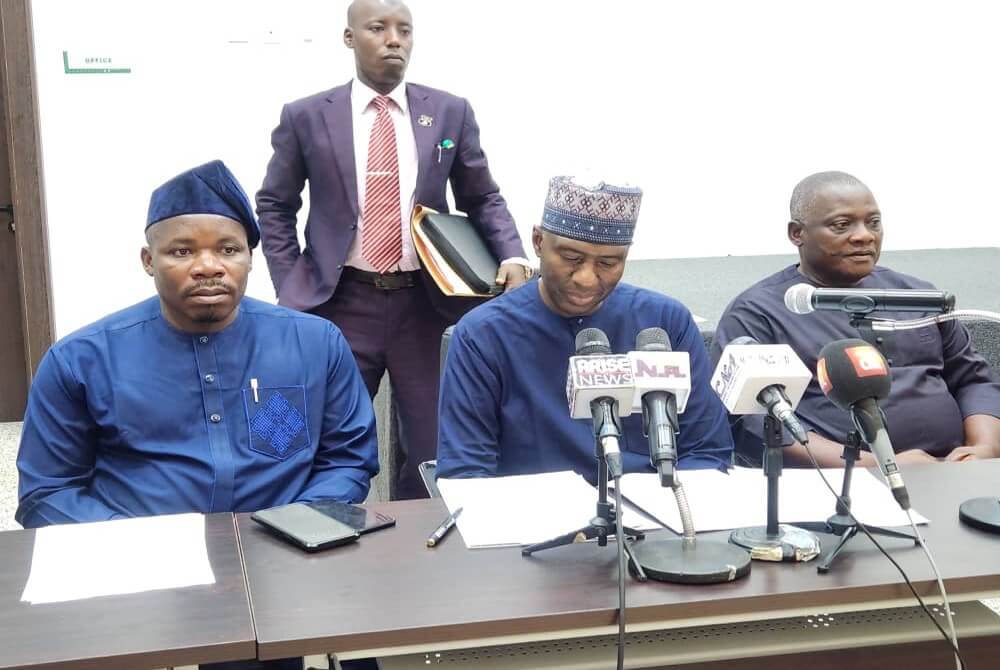Auto Manufacturers Seek FG’s Intervention To Tackle Impediments Facing Local Vehicle Production
The National Automotive Design and Development Council (NADDC) and thr Ministry of Industry Trade and Investment met stakeholders in Nigeria’s automotive industry in a bid to tackle the Impediments facing the industry.
The meeting put together by the NADDC was held in Abuja.
Advertisement
The stakeholders emphasised that Nigeria currently supplies less than 10 per cent of its local components, falling short of the AfCFTA’s 40 per cent local content requirement.
They outlined key areas for collaboration, including resuscitating manufacturing, establishing links between local suppliers and vehicle manufacturers, identifying raw material sources, creating funding mechanisms, and collaborating on industrial infrastructure provision.
Speaking at the event, the Director-General NADDC, Joseph Osanipin, expressed the commitment of the federal government to look into all the plights of the component manufacturers.
He said Nigeria is blessed with a variety of natural resources that are basic raw materials for production of components parts.
Advertisement
According to him, NADDC strategic plan is to focus more on component parts to aid the development of the automotive industry and push for the transition of our assemblers from SKD to CKD auto manufacturers.
He said, “Allow me to draw your attention to the remarkable strides made by our counterparts for example in South Africa, the value of components export in 2022 was $4.312bn, Direct Employment 84,000 and Indirect Employment 560,000.
“Here in Nigeria, Nigeria Vehicle ownership is 6 per cent of the general population as of 2018 (which is approximately 12m) while in South Africa it is about 17.4 per cent. In order to achieve this and more, we need to harness the collective talents and resources at our disposal te drive sustainable growth and development in the sector.
“To the component manufacturers present here today, I extend my deepest appreciation for your unwavering dedication and contributions to our industry. Your ingenuity and expertise are the cornerstones upon which our automotive aspirations are built.
“As we embark on this collaborative journey towards a vibrant and thriving automotive ecosystem, let us remain steadfast in our commitment to excellence, innovation, and inclusivity. Together, we have the power to reshape the future of mobility in Nigeria a chart a course towards prosperity for generations to come.”
Advertisement
Dr. Innocent Chukwuma of Innoson Motors, representing the tyre and tube component, voiced the frustrations shared by manufacturers across Nigeria.
Chukwuma recounted his experience establishing a tyre-manufacturing factory in Enugu, emphasising the significant delays encountered until receiving recent approval from the present administration.
He stated that if allowed to operate, the factory would not only create jobs but also ensure tire production accessibility for all Nigerians.
While advocating for increased government support to the sector, Chukwuma urged stakeholders to collaborate synergistically to position Nigeria as a leading hub for automobile production in the foreseeable future.
“I believe this government has the interest of Nigeria’s future at heart, and I must commend their efforts.
“I urge us all to join hands to ensure the idea behind this forum is achieved,’’ Chukwuma said.
Advertisement
Mr. Chika Okafor of Chikason Group identified inadequate power supply, insecurity, and inconsistent government policies as major challenges affecting the automotive plastic and rubber component sector.
Despite these challenges, he acknowledged the commitment of President Bola Tinubu’s administration.
In his comment, Mr Anslem Ilekuba said the meeting is timely, as the stakeholders put their hands together in reviving the automotive components manufacturing in Nigeria.
He said, ” In the 80’s, the Nigerian Automotive Industry sources about 40 per cent of its components locally. Glasses, tyres, batteries, brake pads, foam and seats, exhaust, electric cables etc, were all produced locally and supplied to local assembly plants. Currently Nigeria supply less than 10% of its local components parts to local vehicle manufactures.
“For Nigeria to achieve the 40% local contents requirement of the AfCFTA much attention has to geared towards support for the local components manufacturing, at this end, there is a need for us to collaborate in the following areas:
“Transform out ways to resuscitate vehicle components manufacturing in Nigeria.
“Provide a link between local suppliers and vehicle manufacturers in Nigeria. Identify sources of raw materials and suppliers of raw material to component manufacturers. Create methods of funding
“Collaborate with government on provision of industrial infrastructures for component manufacturers.”



